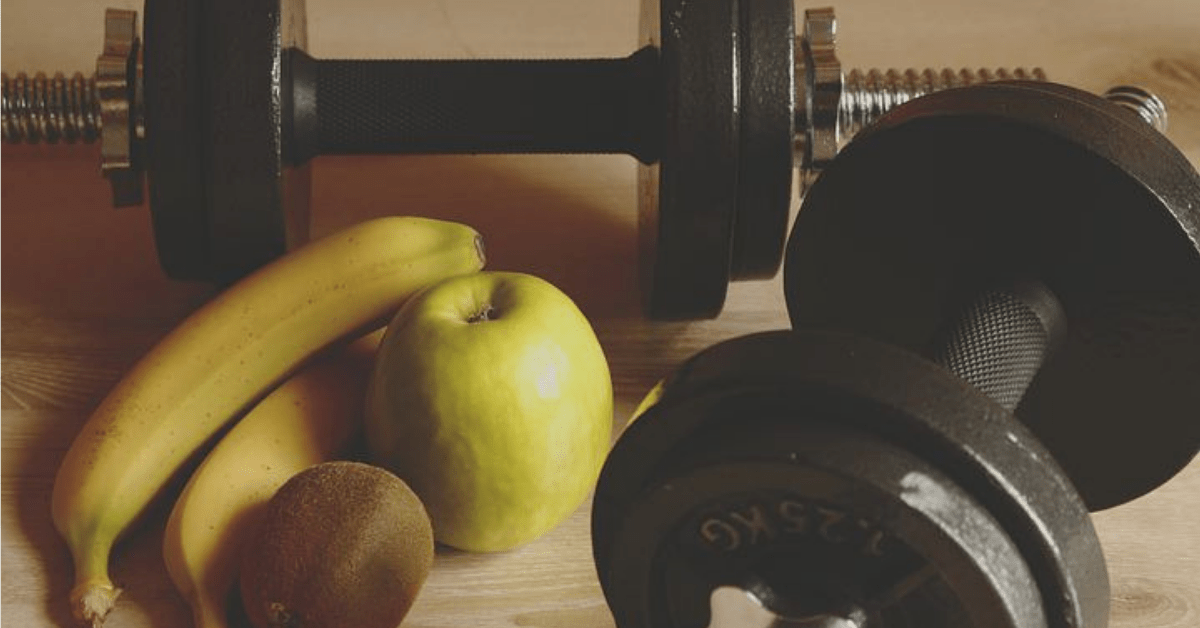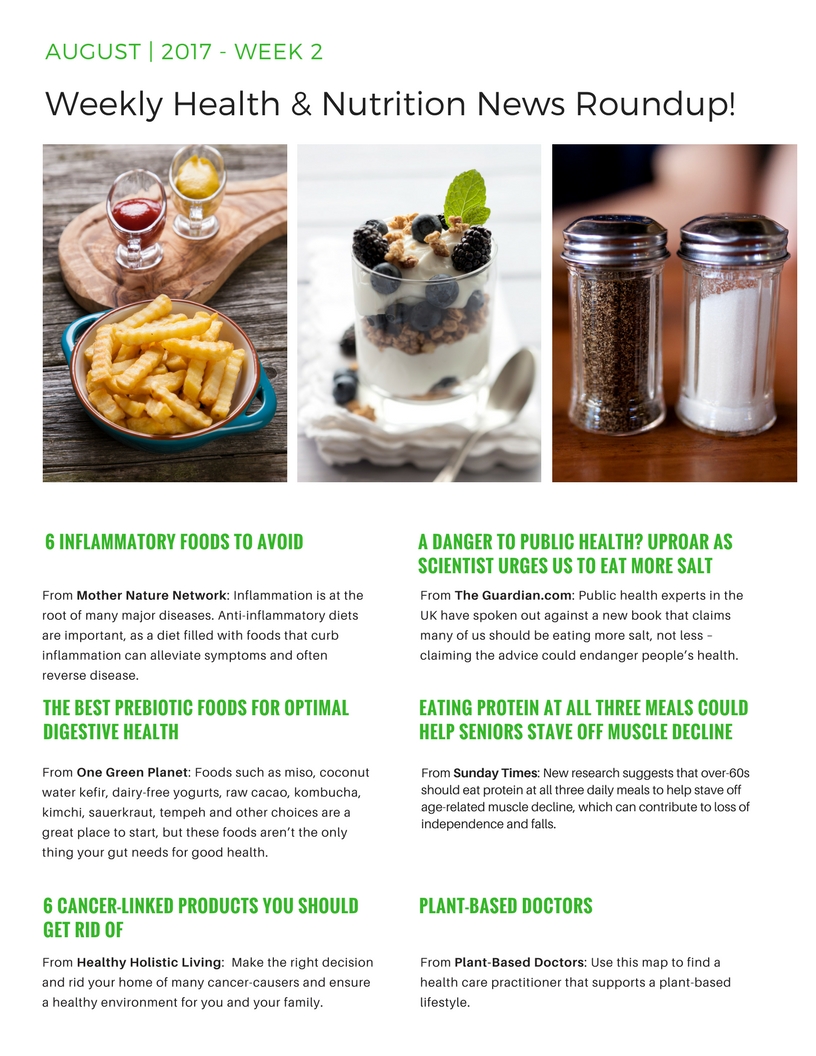
There are many factors that affect the quality and amount of food the elderly eat. These factors include social and emotional ones. It is crucial that elderly subgroups are identified and the role of food related support agencies. It is also important to provide nutrition education to the elderly to translate nutritional guidelines into a manageable food intake.
Insufficient nutrition or malnutrition in the elderly can lead to decreased physical and mental activity and reduced strength and energy. Malnutrition is one of the main causes of premature death in the elderly. The European Society of Clinical Nutrition and Metabolism has defined malnutrition in this way: a lack of nutrition necessary to maintain normal body weight, energy, and body shape.
Housebound older adults or those who live alone may be at greater risk for nutritional problems than other seniors. This could be because of decreased mobility, reduced income or inability to access food away from home.

Nutrition education is an important part of reducing the risk for premature chronic diseases in seniors. It promotes healthy aging by improving nutrition intake and sedentary habits.
Healthy Aging Program promotes the health of older people and helps to reduce hunger, food insecurity, and other issues. The program gives older adults the opportunity to develop new friendships and take part in health promotion programs. The Healthy Aging Program offers nutrition services to help improve dietary intake and sedentary behaviour. This program promotes positive attitudes towards aging, healthy dietary habits and regular physical activity.
REACH is a research project that focuses upon nutrition and physical activity in older people. The project uses insights from a semi-structured interview to explore aspects of food intake among older adults. This information was then used for development of a scenario-based personalized food provision module.
The module consisted of recipes that were adapted to each individual, considering both official guidelines and practices within elderly nutrition. For each participant, a complete personalised nutrition was calculated, including carbohydrates and protein as well as fat. It also included the ingredients of all the above recipes, as well as cooking conditions for each individual.

A quarter of all elderly Americans live in rural areas where food access is limited. Older adults may not have the money to purchase nutritious foods if they are on a fixed income. They may also limit food intake or waste food. They may also opt for cheaper brands.
Individualized prevention strategies are required for the elderly. Personalized nutrition is something they need to be encouraged to do. The Elderly Nutrition Program also receives client contributions and state and federal funding. It is also supported locally.
The Department of Health and Human Services administers the Elderly Food Program (DHHS) and U.S. Department of Agriculture, (USDA).
FAQ
What's the difference between a virus & a bacterium?
A virus is a microscopic organism that cannot reproduce outside its host cell. A bacterium can be described as a single-celled organism which reproduces by splitting in two. Viruses can be as small as 20 nanometers, while bacteria can grow up to 1 micron.
Viruses can spread from contact with bodily fluids that are infected such as saliva, urine or semen. Bacteria can be spread by direct contact with infected objects and surfaces.
Viruses can enter our bodies through cuts, scrapes, bites, or other breaks in the skin. They can also be transmitted through the eyes, nose, mouth, ears, vaginal, rectum, and anus.
Bacteria can be introduced to our bodies by cuts, scrapes or burns. They can also get into our bodies via food, water or soil.
Both bacteria and viruses can cause illness. But viruses do not have the ability to multiply within their hosts. So they only cause illnesses when they infect living cells.
Bacteria can multiply within their hosts and cause illness. They can spread to other parts of our bodies. To kill them, we must use antibiotics.
Here are 7 ways to live a healthy lifestyle.
-
Take care of your health
-
Exercise regularly
-
Good sleep
-
Drink lots of water
-
Get adequate sleep
-
Happy!
-
Smile often
How can I live my best life everyday?
To live a happy life, the first step is to discover what makes you happy. Once you've identified what makes your happy, you can start to work backwards. You can also ask others how they live their best lives everyday.
You can also read books like "How to Live Your Best Life" by Dr. Wayne Dyer. He talks about finding happiness and fulfillment in all aspects of our lives.
What can you do for your immune system to improve?
Human bodies are made up of trillions upon trillions of cells. These cells work together to form organs and tissues that perform specific functions. If one cell dies, a new cell replaces it. Cells communicate with one another using chemical signals called hormonal hormones. Hormones regulate every bodily process, from growth and development to metabolism as well as immunity.
Hormones can be described as chemicals produced by glands in the body. They travel through blood stream and act as messengers that control the function of our bodies. Some hormones are made internally, while some are externally produced.
Hormone production occurs when a hormone producing gland releases its contents to the bloodstream. Once released, hormones move through the body until they reach their target organ. Sometimes hormones stay active for only a short time. Some hormones remain active for longer periods of time and can continue to have an impact on the body's function long after they are gone.
Some hormones can only be produced in large quantities. Others are only produced in very small quantities.
Certain hormones are only produced at certain times in life. For instance, estrogen is produced during puberty, pregnancy, menopause, and old age. Estrogen is important for women to develop breasts and maintain bone density. It also helps prevent osteoporosis. It is also known to promote hair growth and keep skin soft and smooth.
What are 10 healthy lifestyle habits?
-
Every day, eat breakfast.
-
Don't skip meals.
-
Maintain a balanced diet.
-
Drink plenty of water
-
Take care of your body.
-
Get enough sleep.
-
Stay away from junk food.
-
Get at least one form of exercise each day.
-
Have fun
-
Meet new people.
How does an anti-biotic work?
Antibiotics are medications that kill harmful bacteria. Antibiotics are used to treat bacterial infections. There are many options for antibiotics. Some can be taken orally while others can be injected. Others are topically applied.
People who have been exposed are often given antibiotics. An oral antibiotic might be prescribed to someone who has been exposed to chicken pox. This will prevent the spread of shingles. Or, if someone has had strep throat, he or she might receive an injection of penicillin to help prevent pneumonia.
A doctor should give antibiotics to children. Children are at greater risk than adults for developing serious side effects from taking antibiotics.
Diarrhea is one of the most common side effects of antibiotics. Other possible side effects include stomach cramps, nausea, vomiting, allergic reactions, headaches, dizziness, and rashes. These side effects usually disappear once treatment has ended.
Statistics
- Extra virgin olive oil may benefit heart health, as people who consume it have a lower risk for dying from heart attacks and strokes according to some evidence (57Trusted Source (healthline.com)
- According to the Physical Activity Guidelines for Americans, we should strive for at least 150 minutes of moderate intensity activity each week (54Trusted Source Smoking, harmful use of drugs, and alcohol abuse can all seriously negatively affect your health. (healthline.com)
- WHO recommends consuming less than 5% of total energy intake for additional health benefits. (who.int)
- In both adults and children, the intake of free sugars should be reduced to less than 10% of total energy intake. (who.int)
External Links
How To
Here are 10 tips to help you live a healthy life
How to maintain a healthy lifestyle
We live in a fast paced world, where we don’t get enough sleep and smoke cigarettes. We don’t care enough about our health.
When you work full-time, it is difficult to maintain a healthy diet and exercise program. If you feel stressed, it becomes more difficult. Your mind will tell you that this situation is too much so we end up feeling guilty and giving up.
It is possible that your body is experiencing problems. Consult a doctor immediately to get his/her opinion on your current condition. If there's nothing abnormal, you might have stress from your job.
People believe they are lucky because they can go to the gym every day or have friends who keep them fit. But those people are actually lucky. These people have no problems. They have everything under control. I wish everyone could be one of them. Unfortunately, most of us don't know how to balance our work life and personal life. Bad habits can lead to heart disease, diabetes, and other diseases.
Here are some ways to improve your daily life.
-
Sleep well - at least 7 hours per night, maximum 8 hours. This includes proper sleeping postures and avoiding caffeine in the hours before bed. Caffeine blocks melatonin hormones which makes it difficult to fall asleep. Make sure your bedroom's dark and clean. Blackout curtains are a must, especially if you work late at nights.
-
Get healthy - Start your day with a good breakfast. Avoid sugary products, fried foods, white breads, and processed food. Lunch should include fruits, vegetables, and whole grains. Afternoon snacks are recommended to be rich in protein and fiber, such as nuts, seeds, beans, fish and dairy products. Avoid unhealthy snacks like chips, candies, cookies, cakes and sodas.
-
Get enough water. Many people don't get enough. Water aids in weight loss, skin health, digestion, and keeps our skin young and supple. Six glasses of water daily can help you lose weight quicker. The best way to measure your hydration level is by checking the color of your urine. Yellow indicates dehydrated, orange signifies slightly dehydrated, pink signifies normal, red signifies overhydrated and clear signifies highly-hydrated.
-
Exercise - Regular physical activity has been proven to increase energy levels and reduce depression. Walking is an easy workout that can also improve your mood. Even though walking looks simple, it requires effort and concentration. Your brain must focus on walking and breathe slowly and deeply. A 30 minute walk at a moderate pace for about 100 calories can burn between 100-150 calories. Slowly build up and start slow. Stretching after exercise is important to avoid injury.
-
Positive thinking is important for mental well-being. If we are positive, we create a happier environment in our minds. Negative thoughts drain energy and can cause anxiety. Try to visualize the things you are aiming to achieve. If you feel overwhelmed by all these new tasks, break down each task into small steps. Remember that you are bound to fail sometimes but just pick yourself up and start again.
-
You must learn to say No - Too often we get so busy we forget how much time is wasted on things that are not important. It is important for you to know when to say no. It is not rude to say 'no'. A No means that you can't take care of something now. There are always other options to finish the job later. Be clear about your boundaries. Ask someone to help. You can also delegate this task to another person.
-
Take care of you body. You can boost your metabolism by eating healthier foods. You should avoid eating too many oily and heavy foods, as they can increase your cholesterol. Good advice is to have at least three meals and two snacks per day. Aim to consume 2000-2500 calories each day.
-
Meditate – Meditation is an excellent stress reliever that can also reduce anxiety. Sitting still with closed eyes allows your mind to relax. This exercise will improve your ability to think clearly and help you make decisions. Meditation regularly can make you happier and calmer.
-
Breakfast is the most important meal in the day. Skipping breakfast could lead to eating more lunch. It is never too late to eat a balanced breakfast as long as you eat within 1 hour of waking. Breakfast boosts energy and helps to manage hunger.
-
Make sure you eat clean food. Food has a greater impact on your mood than you realize. Avoid junk food or any food items that contain preservatives or artificial ingredients. These products keep your body acidic and trigger cravings. Vegetables and fruits are high in vitamins and minerals, which can lead to better overall health.
-
***